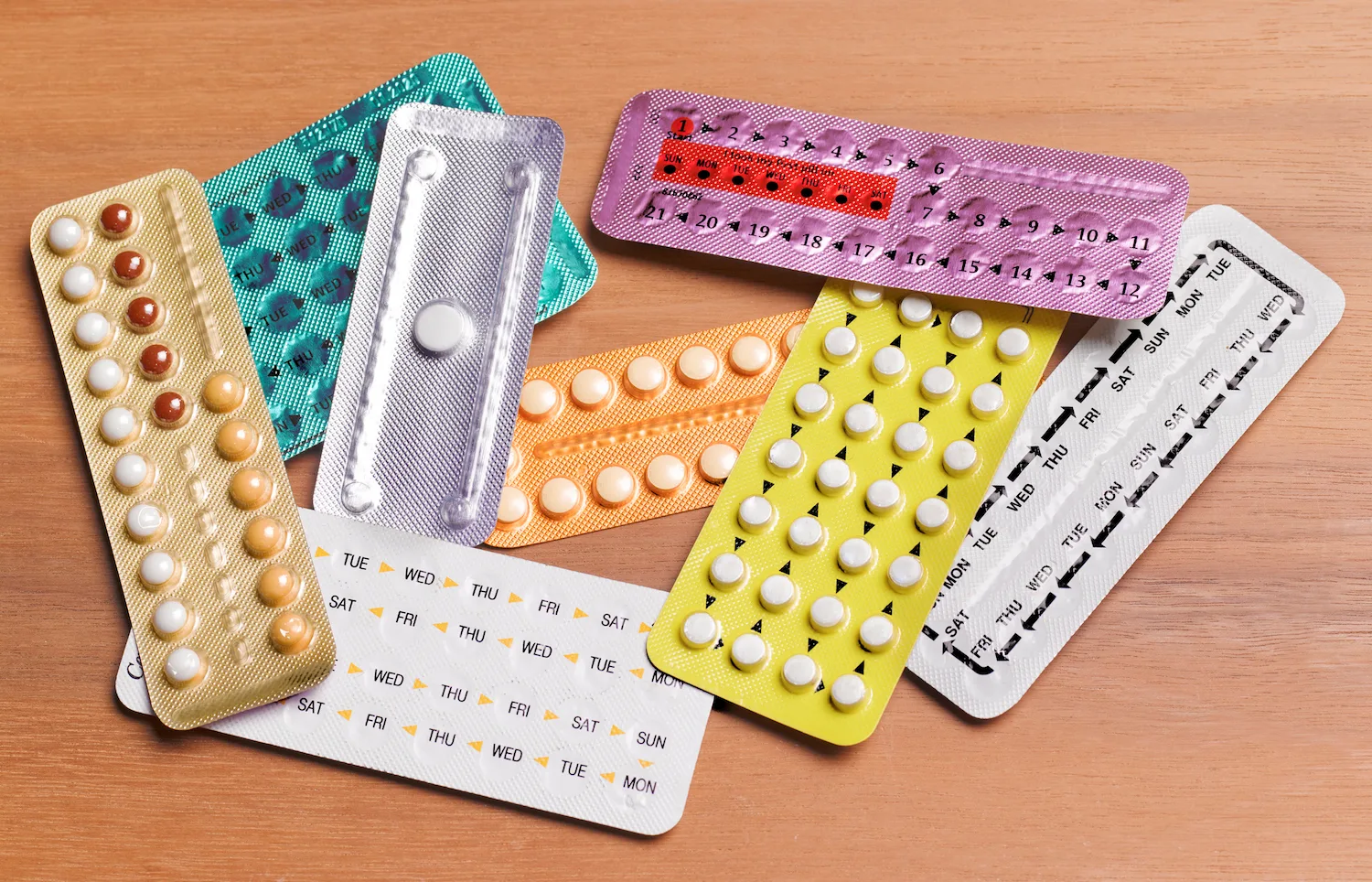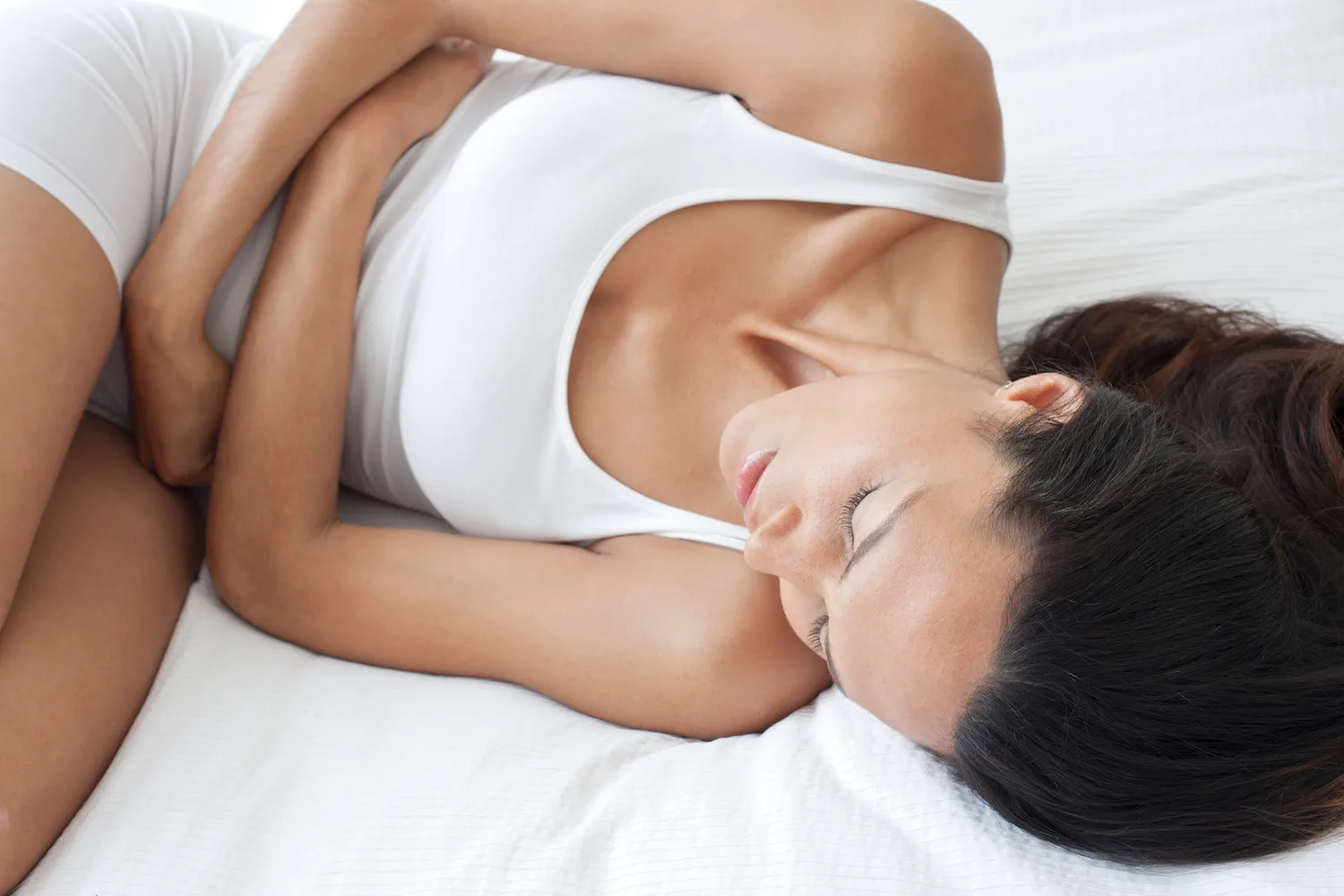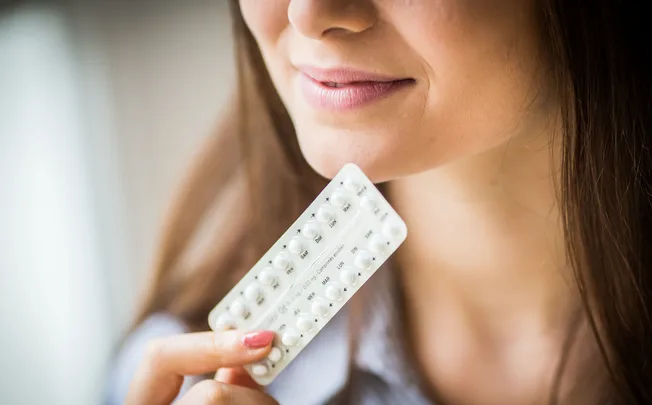It’s the little round pill that opened up endless opportunities, safeguards and sexual empowerment to generations of women since it was introduced in the 1960s. But decades on, and with major advancements in technology, women are now starting to move away from the pill as a primary form of birth control due in large part to the colourful array of side effects and health risks that often come with taking it. Think acne, bloating, sore breasts, weight gain, anxiety and even depression, to name but a few.
What is the contraceptive pill?
The combined oral contraceptive pill (OCP) or “the pill” as most of us know it, is a form of contraception taken orally that includes the hormones oestrogen and progestogen that is aimed to stop a woman falling pregnant after sexual intercourse.
RELATED: New Warnings For Women Using The Contraceptive Pill
How does the pill work?
The pill works by stopping a woman’s ovaries from releasing an egg each month as well as thickening the mucus at the entrance of the uterus to prevent sperm from getting in. It also changes the lining of the woman’s uterus so as to prevent an egg from implanting, should one still make it through.
Most pills come in a pack of 28, relying on the woman to take them at the same time each day – it loses its effectiveness if even one day is missed. The pill usually includes 21 active pills and 7 inactive pills or sugar pills but this can vary so you must consult your specific pill’s instructions or speak with your doctor on the correct way to take your specific pill.
The pill can also lose its effectiveness if you vomit or have diarrhea shortly after taking it or are on specific medications that can interfere with it. Always speak with your doctor if you are concerned.
What are the different types of contraceptive pill?
There are many different types of pill available, ranging from the standard OCP as mentioned above as well as the “mini pill” which includes progestogen only and the emergency contraceptive pill or “Morning after pill”.
RELATED: Just How Safe Is The Pill, Yaz?

What else is the pill used for?
For many years the pill was hailed as a wonder fix for not only contraception but to treat a number of female health issues including painful and/or heavy periods, premenstrual syndrome and Polycystic Ovarian Syndrome and endometriosis.
What are some of the side effects of the contraceptive pill:
While not all women will experience all if any of these, there are some side-effects to be aware of:
1. Nausea
Often in the beginning of taking the pill women report feeling nauseous or queasy for up to a few months.
2. Sore or tender breasts
Some women report increased breast sensitivity and tenderness for up to 18 months after starting the pill.
3. Irregular vaginal bleeding
The change in the hormone levels can cause a woman’s body to spot bleed while it adjusts.
4. Bloating
With the hormone levels being forced onto a synthetic rollercoaster the body can retain water which leads to bloating
5. Headaches
Some women report headaches both when going on (and especially off) the pill, a 2005 study reported that only 10 percent of users women experienced this.
6. Increased appetite
While many women would attest to this being a monthly side-effect with or without the pill, many women feel increased hormones that come with the pill are to blame for an increased hunger for food.
7. Weight gain
And further to that some women blame weight gain on the pill – which could be due to increased appetite as well as bloating – but there is no conclusive evidence to back this up.
8. Changes to your skin
Despite many pills being touted as acne cures, some women report breakouts after going on the pill. Again likely due to the increased hormones in the body. The pill has also been linked with melasma, or brown-coloured splotches on the skin.
9. Mood changes, anxiety and depression
This is largely dependant on the individual before going on the pill and also with some women being extremely sensitive to small shifts in hormone levels, while some are able to tolerate more. Synthetic progesterone has been found to have significant impact on serotonin and monoamine oxidase in the brain which can result in depression, mood swings and anxiety. The Conversation reports woman taking the oral contraceptive pill were more likely to be depressed than non-pill users, with multiple studies backing these claims.

10. Increases your risk of major health problems
Better Health VIC reports that the pill poses a “very small increase” in your risk of developing deep vein thrombosis (blood clot), heart attack or stroke.
11. Lower sex drive.
While some women report a higher sex drive on the pill, many women report a lower libido after taking it. Countless studies have tried to understand why this is the case, with many conflicting results. A 2013 study found that about 15% of women noticed a dip in libido while on birth control, however, it could not be determined if the pill – or other factors – were the actual cause of the loss of sex drive.
Are there any positive side effects?
But the news isn’t all bad. Some people will go on the pill with no side-effects at all and, in some cases – and hence why the pill became so popular – there can be some side-effects that are favourable:
1. Reduced risk of certain cancers.
According to a 2011 review of studies which looked at the link between birth control and some cancer risks, concluded that some cases of endometrial and ovarian cancers were reduced by 30 to 50 per cent among women without a history of HIV or HPV.
2. Fewer cramps
Some women report that the pill relieves the pain they experienced monthly before going on the pill.
3. Lighter periods
As well as making periods lighter the pill can also help them become less regular if you were someone that experienced them more than every 28 days.
4. Can help relieve symptoms of polycystic ovarian syndrome (PCOS) and endometriosis
Doctors will often prescribe the pill for those suffering from PCOS or endometriosis to help regulate the cycle, reduce excess hair growth and acne, and prevent the lining of the womb from thickening excessively. However, this is largely dependant on what type of pill is prescribed so you should always speak to your doctor about which pill is best for you.
5. Clearer skin
The pill can help improve acne by balancing out the hormones in the body and this can often result in clearing up skin problems caused by too many male hormones.
6. Mood improvements.
Some women report that the pill actually improves their mood, with some evidence even suggesting the pill can reduce their depressive symptoms.
7. Increased sex drive
This could either be in part due to a chemical reaction to the hormones or a result of the freedom that comes with having control over contraception and allowing women to separate sex from procreation.

8. The power to skip periods and have more freedom
The pill gives women the power to be in control of their bodies and make choices.
And of course, the best side effect of all is that it puts the power of procreation in a woman’s own hands. She has the power to decide when she gets pregnant and allows her to enjoy sex without the fear of falling pregnant. It allows women to focus on their career and choose when the time is right for them to have a baby.
Know your body
There have been countless studies into the contraceptive pill and the side effects it has on women’s bodies, but no one knows your body better than you. If you feel concerned over any of the symptoms mentioned above, or have any other symptoms that you feel are related to taking the pill, always speak to your doctor or seek professional medical advice.
Sources:










